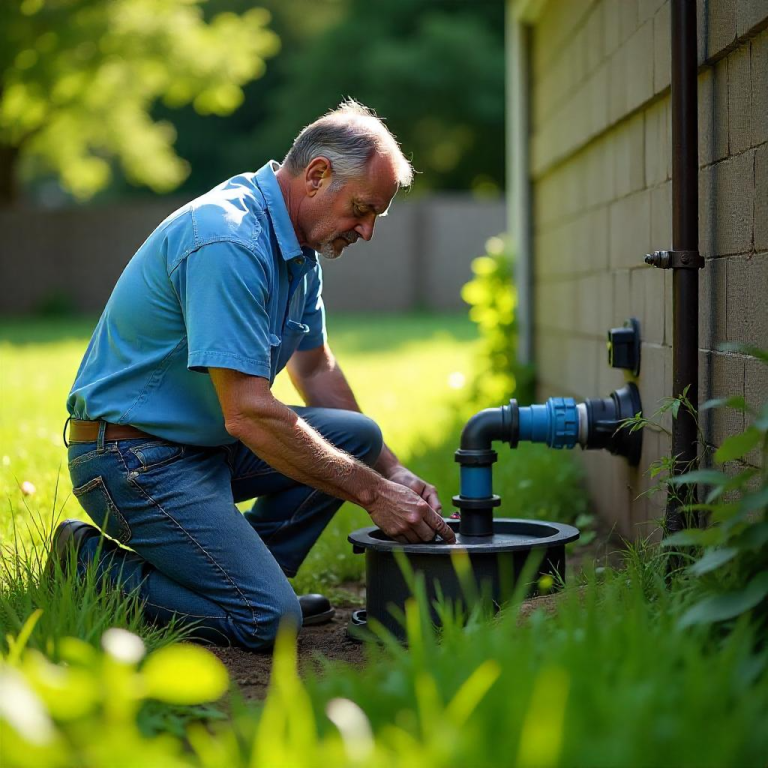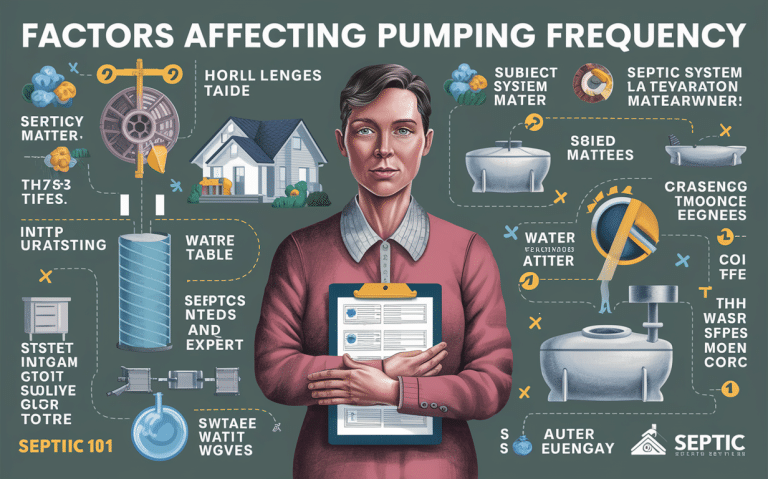Essential Guide: Maintaining Proper Waste Decomposition with Septic Tank Pumping
Maintaining proper waste decomposition with septic tank pumping prevents costly repairs, protects the environment, and ensures efficient system operation.
Septic tank pumping is essential for maintaining proper waste decomposition. Regular maintenance of your septic tank prevents costly repairs, property damage, and environmental hazards.
Key Takeaways
- Regular septic tank pumping ensures efficient waste decomposition.
- Signs of a full septic tank include slow drains, bad odors, and sewage backup.
- A well-maintained septic system protects your property and the environment.
- Pumping frequency depends on household size, tank size, and usage habits.
Why Does Proper Waste Decomposition Matter?
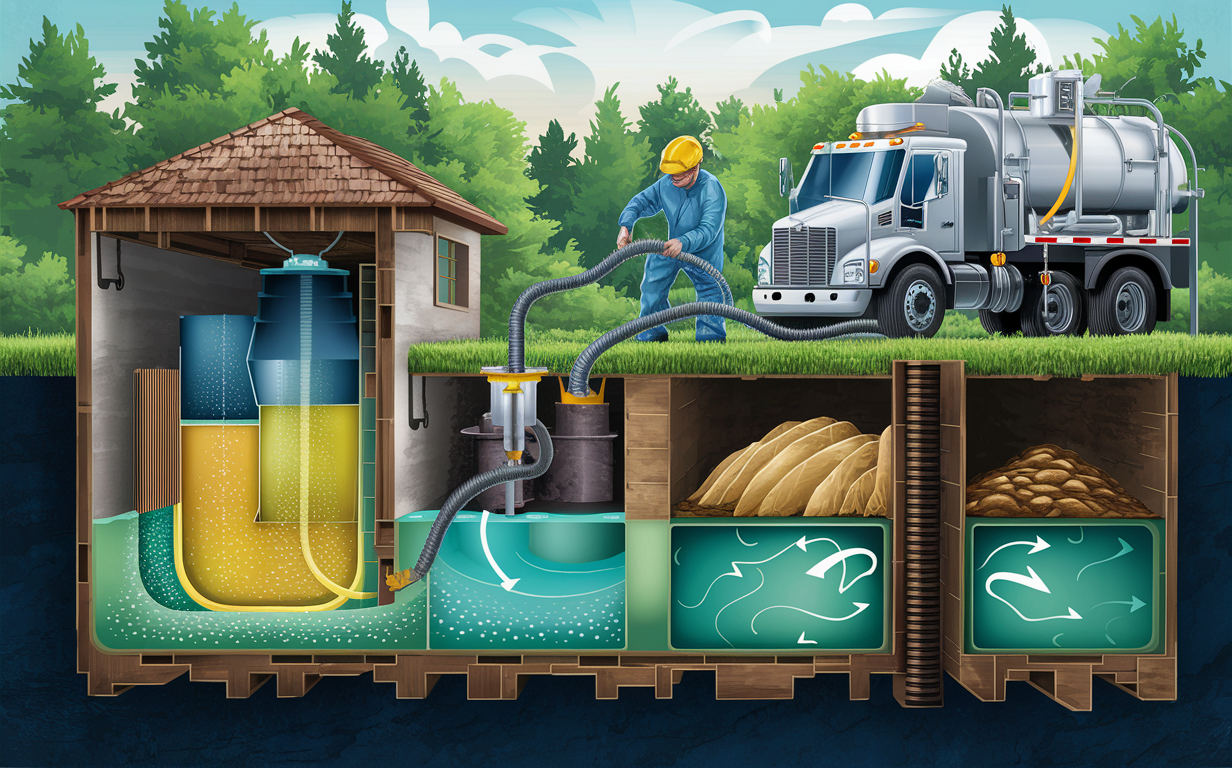
A septic tank efficiently handles household waste by allowing solids to settle and decompose over time. Without regular pumping, solids accumulate, reducing the tank’s efficiency and leading to clogs and overflows.
How a Septic Tank Works
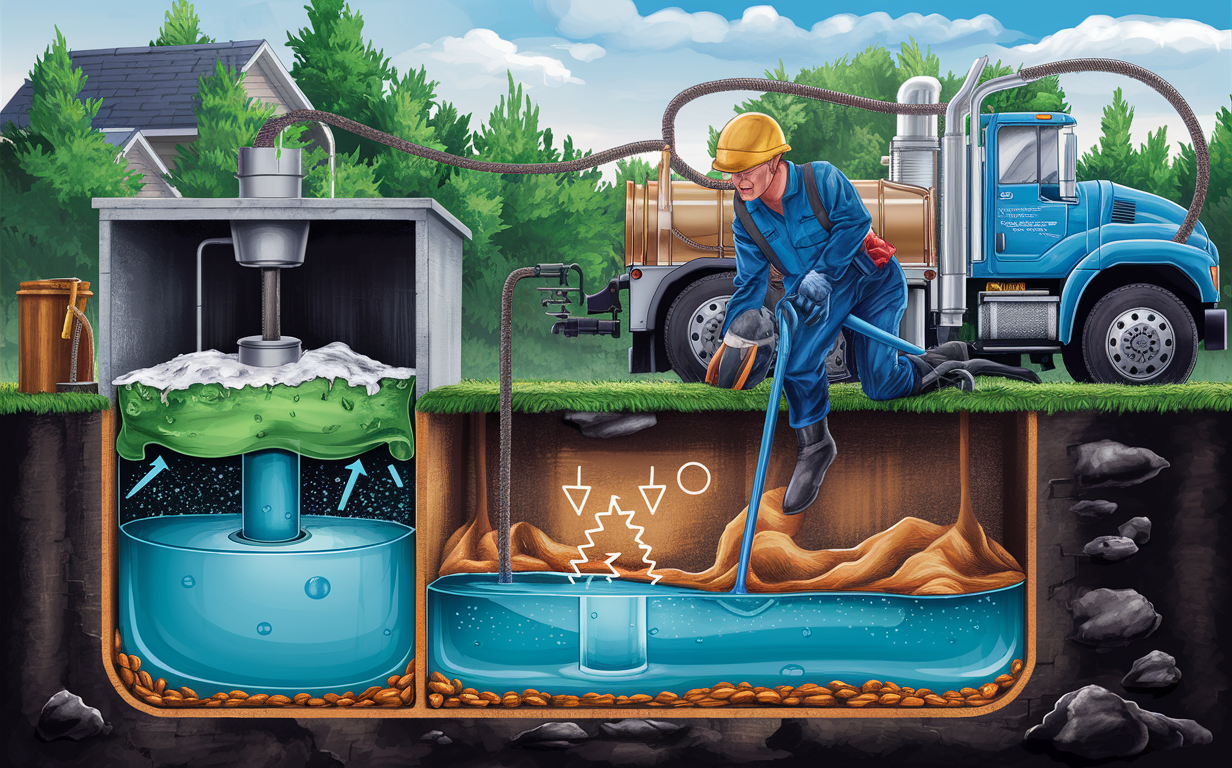
Septic tanks are underground chambers made from concrete, fiberglass, or plastic. Wastewater from your home flows into the tank, where solids settle at the bottom, forming sludge. Lighter materials like grease and oil float to the top, forming scum. The remaining liquid exits the tank into a drain field for further treatment.
Components of a Septic Tank System
| Component | Function |
|---|---|
| Inlet Pipe | Transports wastewater from the house to the septic tank |
| Septic Tank | Settles and decomposes solid waste, separates scum and effluent |
| Outlet Pipe | Carries effluent to the drain field |
| Drain Field | Further treats and disperses effluent into the soil |
Signs Your Septic Tank Needs Pumping
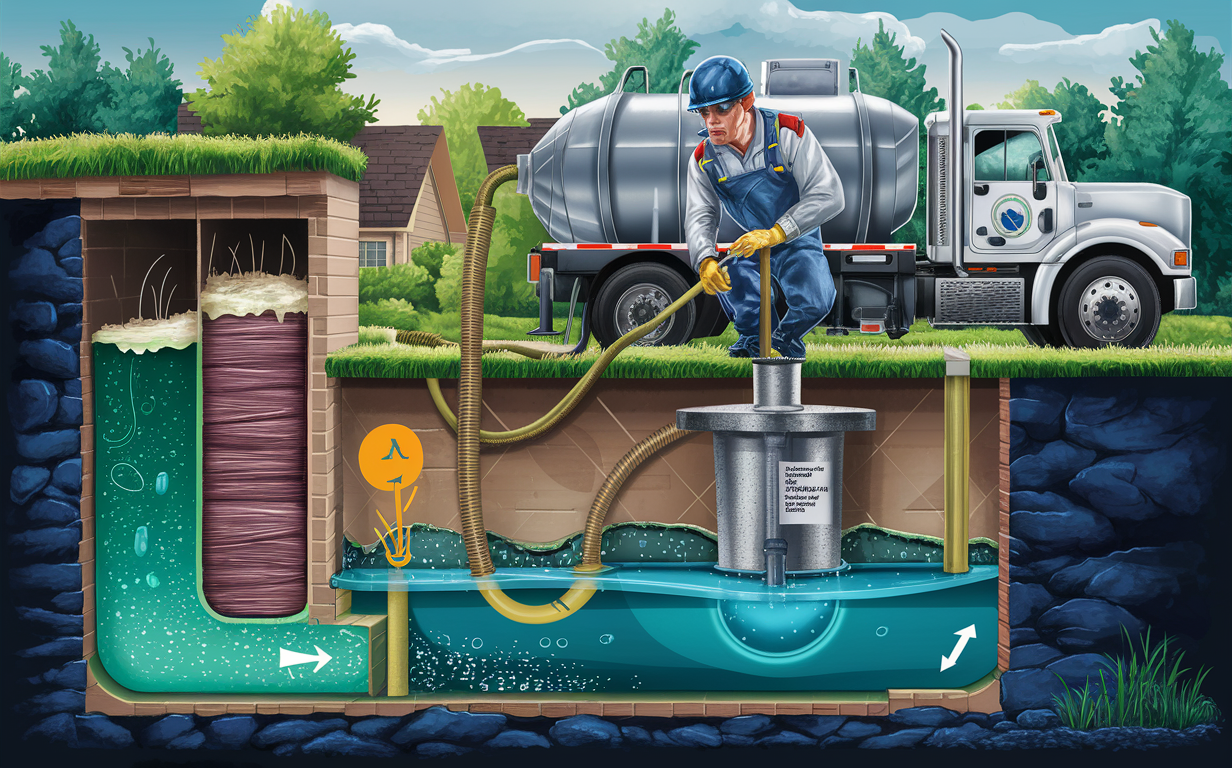
Recognizing the signs that your septic tank needs pumping can save you from severe issues. Here are some common indicators:
- Slow drains: Water drains slowly from your sinks, showers, or tubs.
- Bad odors: Unpleasant smells near your drain fields or within your home.
- Sewage backup: Wastewater backing up into your home, particularly in lower levels.
Common Indicators of a Full Septic Tank
- Slow draining sinks and bathtubs
- Foul odors near plumbing fixtures
- Gurgling sounds in the plumbing system
- Wet spots or lush patches in the yard
- Sewage backing up into the house
Factors Affecting Septic Tank Pumping Frequency
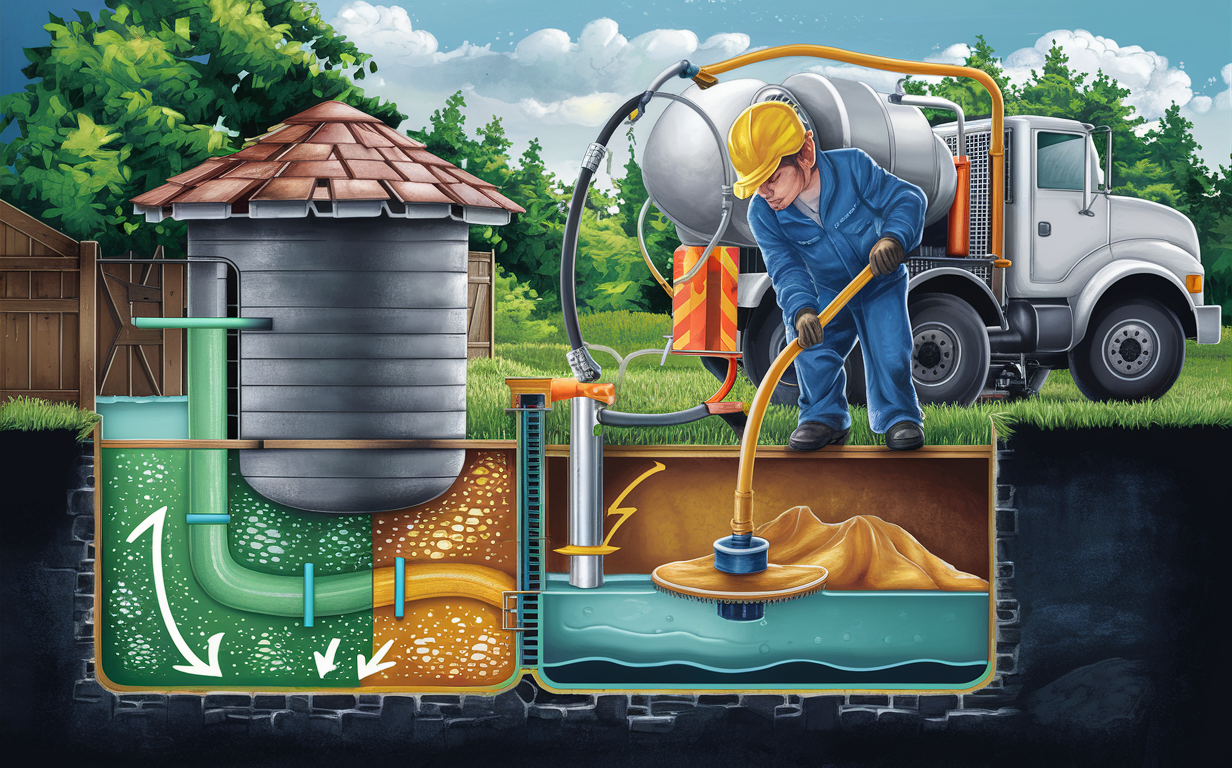
Several factors determine how often you should pump your septic tank. These include:
- Household size: More occupants mean more wastewater, necessitating frequent pumping.
- Tank size: Smaller tanks fill up faster and require more frequent pumping.
- Usage habits: High water use and disposal of non-biodegradable items can quickly fill the tank.
Recommended Pumping Frequency Based on Household Size
| Household Size | Septic Tank Size (gallons) | Pumping Interval (years) |
|---|---|---|
| 1-2 people | 500-750 | 3-5 |
| 3-4 people | 1,000 | 2-4 |
| 5-6 people | 1,500 | 1-3 |
| 7-8 people | 2,000 | 1-2 |
Best Practices for Maintaining Your Septic System
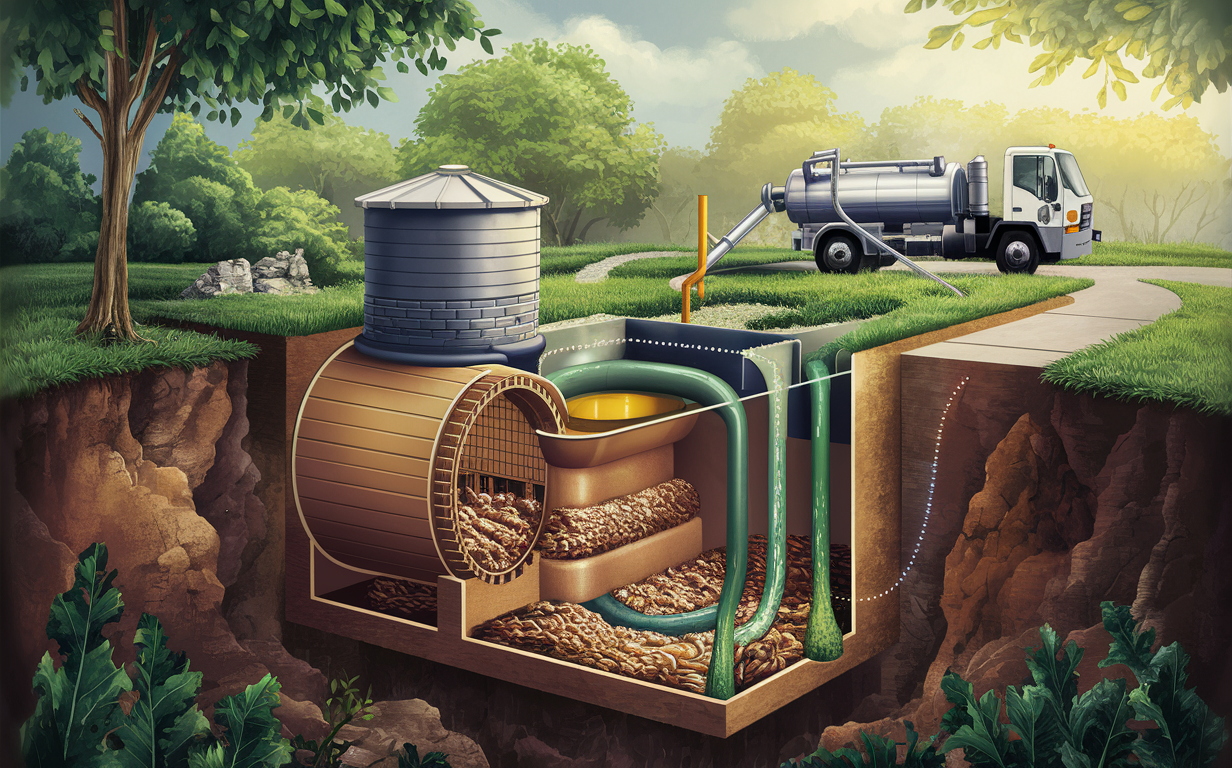
Implementing best practices can extend the life of your septic system and ensure proper waste decomposition.
Use Water Efficiently
Conserving water reduces the load on your septic tank, preventing it from filling up too quickly. Install water-saving fixtures and repair leaks promptly.
Proper Waste Disposal
Only flush biodegradable items and refrain from dumping grease, oil, and non-biodegradable materials down the drain.
Regular Inspections and Maintenance
Schedule routine inspections to identify and rectify minor issues before they escalate. Professional inspections ensure your septic system remains in good working order.
Maintain the Drain Field
Avoid parking vehicles or planting trees over the drain field. Compacted soil and root intrusion can damage the system. Keep the area clear to allow for efficient effluent dispersal.
The Pumping Process Explained
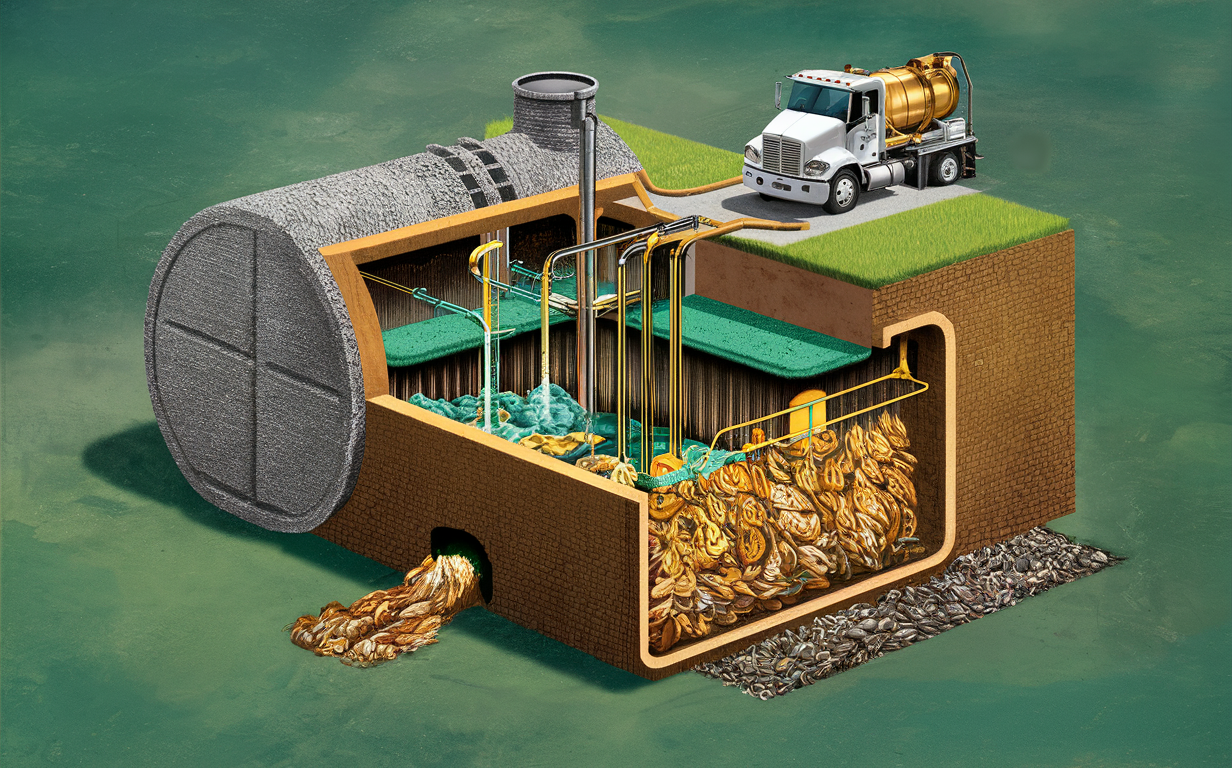
Understanding the pumping process can help you appreciate the importance of this maintenance task.
- Inspection: The technician assesses the system’s condition and checks for leaks.
- Pumping: Using a vacuum truck, the technician removes sludge and scum.
- Cleaning: The tank is thoroughly cleaned to remove any remaining waste.
- Re-inspection: The tank is inspected again to ensure it’s in good condition.
Environmental Impact of Proper Septic Tank Maintenance
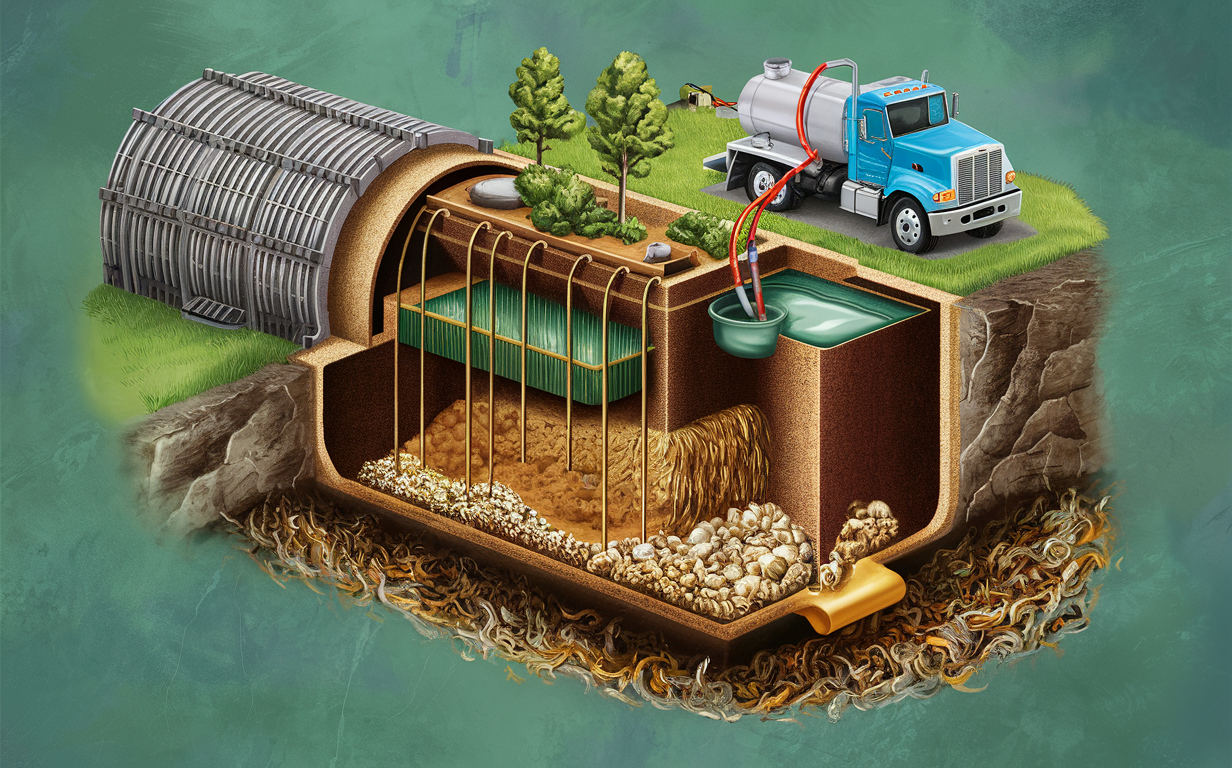
Proper maintenance of septic systems is crucial for protecting the environment. Efficient waste decomposition prevents groundwater contamination and protects local ecosystems.
Protects Groundwater Quality
A well-maintained septic system filters wastewater, preventing harmful pathogens and chemicals from seeping into groundwater supplies.
Reduces Soil Contamination
Properly treated effluent from a functional septic system ensures that soil retains its fertility and remains safe for plant growth.
Minimizes Surface Water Pollution
Preventing septic system overflows stops untreated wastewater from contaminating rivers, lakes, and streams, maintaining healthy water bodies for wildlife and human use.
Facts and Statistics About Maintaining Proper Waste Decomposition with Septic Tank Pumping
- Septic systems serve approximately 25% of the US population: According to the Environmental Protection Agency (EPA), about 25% of the American population relies on septic systems for their wastewater treatment needs (Source).
- Septic tanks require regular pumping: The EPA recommends septic tank pumping every three to five years, depending on the size of the tank and the number of people using it (Source).
- Proper septic system maintenance saves money: Regular septic system maintenance, including pumping, can help prevent costly repairs and replacements (Source).
- Septic pumping removes sludge and scum: During septic pumping, the sludge and scum that accumulate at the bottom and top of the tank are removed (Source).
- Septic systems can fail if not maintained: Neglecting septic system maintenance can lead to system failure, which can result in costly repairs and potential health risks (Source).
FAQs: Common Questions About Septic Tank Pumping
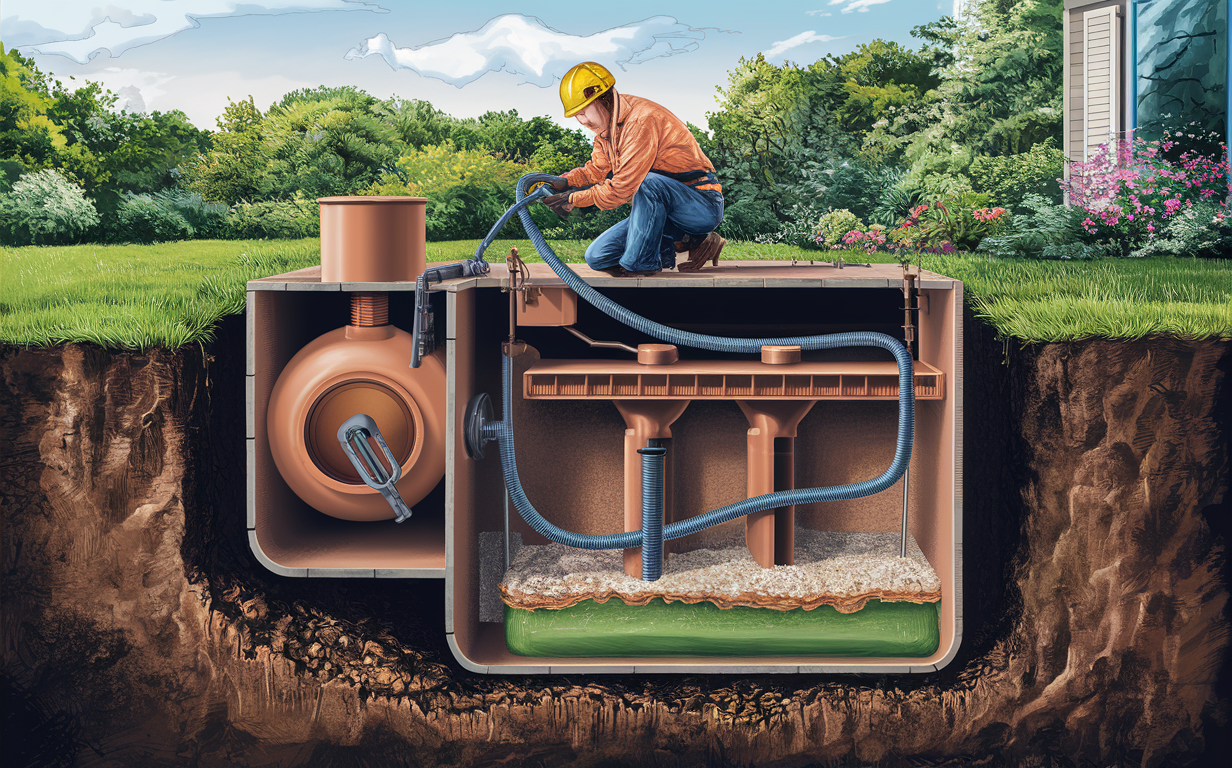
1. How often should I pump my septic tank?
The frequency depends on household size, tank size, and usage habits. Generally, it ranges from 1 to 5 years.
2. Can I pump my septic tank myself?
It’s not advisable. Professional technicians have the necessary equipment and expertise to handle the waste safely and effectively.
3. What happens if I neglect septic tank pumping?
Neglecting pumping can lead to system failure, costly repairs, and environmental contamination.
4. Are there any alternatives to septic tank pumping?
No, regular pumping is essential. Additives may help break down solids but don’t replace the need for thorough cleaning.
Conclusion: Act Now for Efficient Waste Decomposition
Maintaining proper waste decomposition with septic tank pumping is a critical aspect of home and business maintenance. By understanding the importance of regular pumping, recognizing the signs of a full tank, and following best practices, you can ensure your septic system operates efficiently and protects your property and the environment.
Don’t wait for problems to arise—schedule your septic tank pumping with United Sewer & Septic today and experience peace of mind knowing your system is in expert hands.
Get in touch by calling us at (845) 637-3544 or (888) 845-CLOG (2564)!


